
Santa Barbara: The American Riviera
Santa Barbara, often referred to as the American Riviera, is a coastal city that boasts a unique blend of Spanish colonial heritage and modern Californian charm. Nestled between the Santa Ynez Mountains and the Pacific Ocean, this picturesque city offers stunning vistas, pristine beaches, and a mild Mediterranean climate that attracts visitors year-round. Stroll down State Street, the city's main thoroughfare, where you'll find an array of boutiques, art galleries, and gourmet restaurants. Don't miss the historic Santa Barbara Mission, often called the 'Queen of the Missions,' which provides a glimpse into the area's rich history. The city's Spanish colonial architecture, characterized by white stucco buildings and red-tiled roofs, adds to its enchanting ambiance. Outdoor enthusiasts will find plenty to do in Santa Barbara, from hiking in the nearby mountains to kayaking in the ocean. Wine lovers can explore the Santa Ynez Valley, home to numerous vineyards and wineries offering tours and tastings. For a more laid-back experience, visit the Santa Barbara Zoo or take a leisurely walk along Stearns Wharf, where you can enjoy fresh seafood and panoramic ocean views. Whether you're looking for a relaxing beach getaway or an adventure-filled vacation, Santa Barbara has something for everyone. Its blend of natural beauty, cultural attractions, and culinary delights make it a must-visit destination on the California coast.
Local tips in Santa Barbara
- Visit outside of peak seasons like summer to enjoy fewer crowds and more affordable accommodations.
- Rent a bike to explore the city and its beautiful coastline, it's eco-friendly and offers a unique perspective.
- Check out the local farmers' market on Tuesdays and Saturdays for fresh produce and local crafts.
- Book winery tours in advance to secure your spot, especially during weekends and holidays.
- Don't miss the sunset from the Santa Barbara Courthouse's clock tower for an unforgettable view.
Neighbourhoods in Santa Barbara
Santa Barbara: The American Riviera
Santa Barbara, often referred to as the American Riviera, is a coastal city that boasts a unique blend of Spanish colonial heritage and modern Californian charm. Nestled between the Santa Ynez Mountains and the Pacific Ocean, this picturesque city offers stunning vistas, pristine beaches, and a mild Mediterranean climate that attracts visitors year-round. Stroll down State Street, the city's main thoroughfare, where you'll find an array of boutiques, art galleries, and gourmet restaurants. Don't miss the historic Santa Barbara Mission, often called the 'Queen of the Missions,' which provides a glimpse into the area's rich history. The city's Spanish colonial architecture, characterized by white stucco buildings and red-tiled roofs, adds to its enchanting ambiance. Outdoor enthusiasts will find plenty to do in Santa Barbara, from hiking in the nearby mountains to kayaking in the ocean. Wine lovers can explore the Santa Ynez Valley, home to numerous vineyards and wineries offering tours and tastings. For a more laid-back experience, visit the Santa Barbara Zoo or take a leisurely walk along Stearns Wharf, where you can enjoy fresh seafood and panoramic ocean views. Whether you're looking for a relaxing beach getaway or an adventure-filled vacation, Santa Barbara has something for everyone. Its blend of natural beauty, cultural attractions, and culinary delights make it a must-visit destination on the California coast.
When is the best time to go to Santa Barbara?
Iconic landmarks you can’t miss
Stearns Wharf
Experience Santa Barbara's waterfront charm at Stearns Wharf, California's oldest working wharf, offering dining, shopping, marine adventures, and stunning Pacific views since 1872.
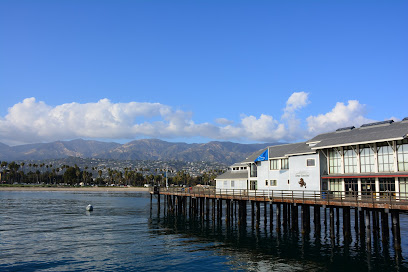
Old Mission Santa Barbara 1786
Discover California's rich history and enduring beauty at the Old Mission Santa Barbara, the 'Queen of the Missions,' a captivating landmark with stunning architecture and serene gardens.
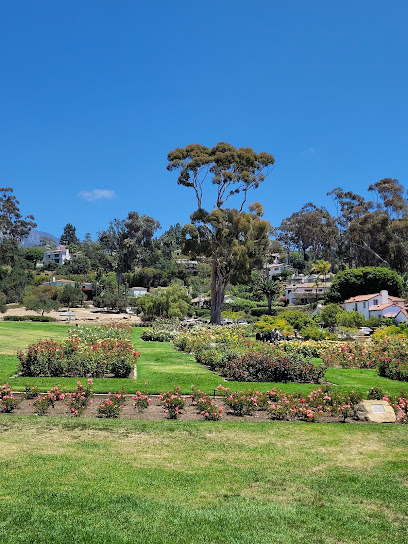
Arroyo Burro Beach County Park
Discover Arroyo Burro Beach (Hendry's Beach): Santa Barbara's favorite coastal escape offering surfing, dog-friendly trails, stunning views, and beachfront dining.
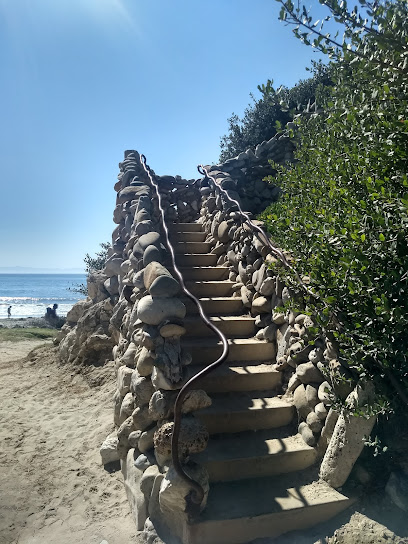
Shoreline Park
Discover breathtaking ocean views, family fun, and a tranquil escape at Santa Barbara's iconic Shoreline Park, a coastal treasure for locals and tourists alike.
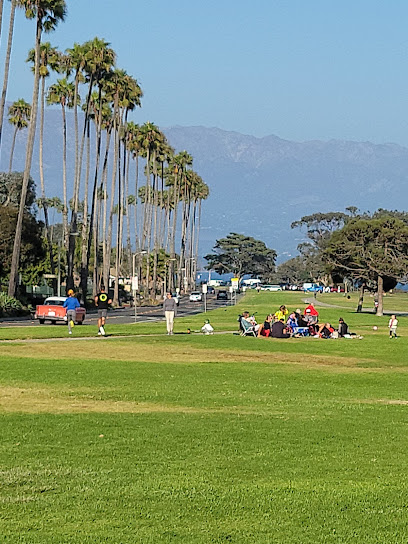
Santa Barbara Harbor
Discover Santa Barbara Harbor: A vibrant waterfront destination with maritime history, scenic beauty, diverse activities, and delicious dining experiences along California's Central Coast.
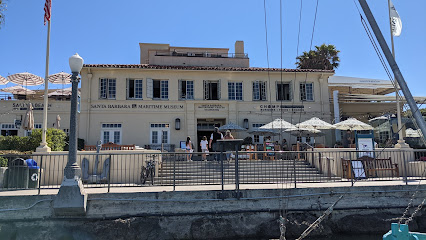
Alameda Park
Discover Alameda Park in Santa Barbara: a historic green space with rare trees, Kids World playground, and vibrant community events, perfect for family fun and relaxation.
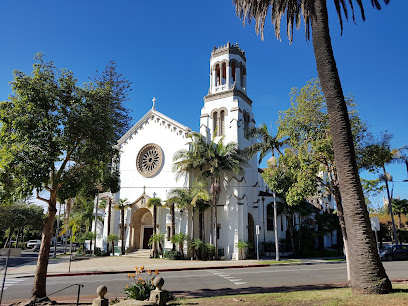
Santa Barbara Botanic Garden
Discover California's native plant life at the Santa Barbara Botanic Garden, a 78-acre sanctuary showcasing diverse ecosystems, historic landmarks, and breathtaking views in a serene Mission Canyon setting.

Santa Barbara Museum Of Art
Explore 5,000 years of human creativity at the Santa Barbara Museum of Art, home to a renowned collection of international antiquities and modern masterpieces in the heart of downtown.

Lotusland
Discover a world-renowned botanical garden in Montecito, showcasing rare and exotic plants in a series of themed gardens, a testament to Madame Ganna Walska's artistic vision.
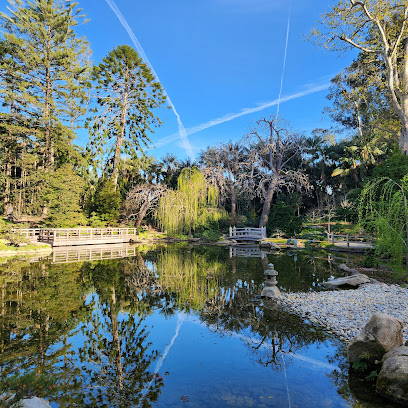
Kids World
Discover Santa Barbara's beloved Kids World in Alameda Park: a whimsical, community-built playground offering endless fun for children and a cherished family destination.
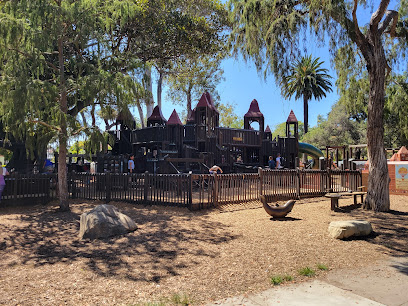
Moreton Bay Fig Tree
Visit Santa Barbara's Moreton Bay Fig Tree, a historic landmark and believed to be the largest Ficus macrophylla in the U.S., offering a unique natural spectacle near the Amtrak station.
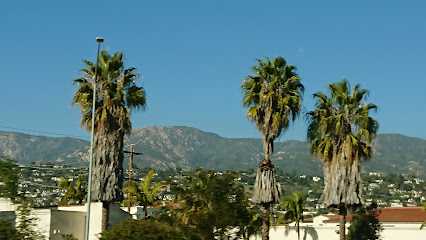
El Presidio de Santa Bárbara State Historic Park
Explore California's colonial past at El Presidio de Santa Bárbara State Historic Park, where reconstructed adobe buildings and heritage gardens tell the story of a multicultural heritage.
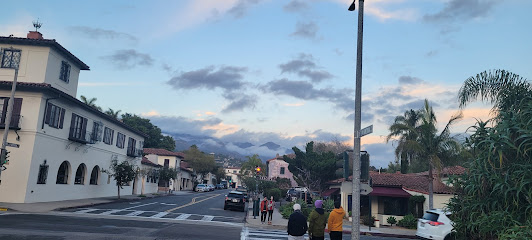
Chumash Painted Cave State Historic Park
Discover ancient Chumash rock art at Chumash Painted Cave State Historic Park, a unique cultural site offering a glimpse into the lives and beliefs of California's indigenous people.
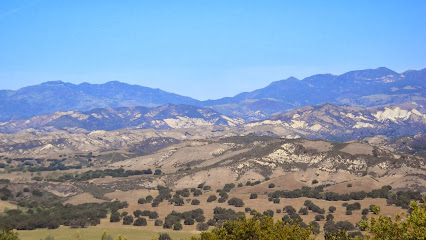
Santa Barbara Historical Museum
Discover Santa Barbara's captivating history at this downtown museum, exploring Chumash, Spanish, Mexican, and American heritage through artifacts, art, and historic adobes, with free admission for all.
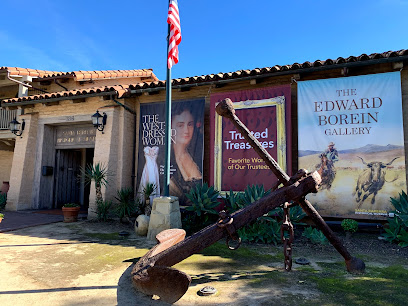
Mission Historical Park
Discover Santa Barbara's rich history and natural beauty at Mission Historical Park, home to the A.C. Postel Memorial Rose Garden and remnants of the Mission's historic waterworks.
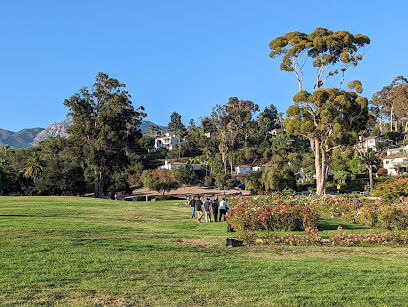
Unmissable attractions to see
Stearns Wharf
Discover California's oldest working wharf in Santa Barbara: dining, shopping, stunning views, and marine adventures await!
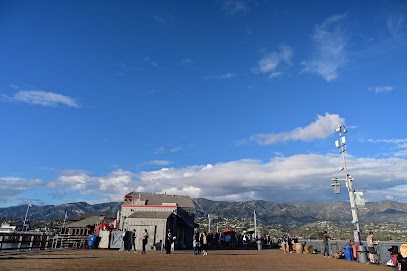
Santa Barbara Zoo
Explore the enchanting Santa Barbara Zoo, where wildlife conservation meets stunning coastal views in a delightful family-friendly environment.
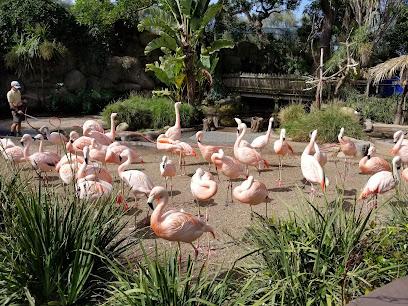
Santa Barbara Zoo
Experience the wonder of wildlife at Santa Barbara Zoo, a charming coastal attraction blending conservation with family-friendly fun.
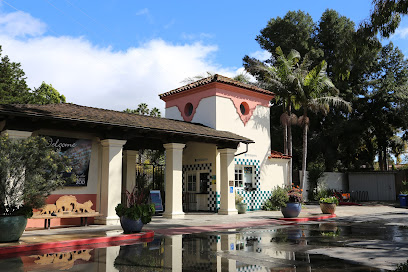
Pier Santa Barbara
Experience California's oldest working wharf in Santa Barbara: Stearns Wharf, offering dining, shopping, and stunning ocean views since 1872.
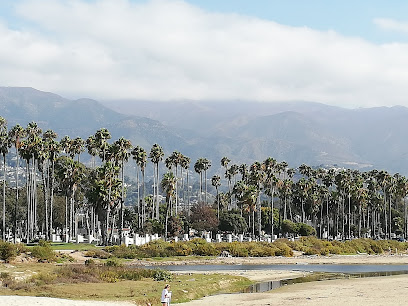
Ostrichland USA
Explore Ostrichland USA in Solvang: A unique wildlife refuge where you can feed and learn about fascinating ostriches and emus in a stunning natural setting.
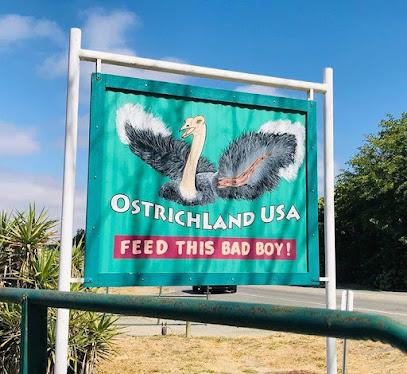
Old Mission Santa Barbara
Explore the beauty and history of Old Mission Santa Barbara, a stunning landmark and museum showcasing California's rich cultural heritage.
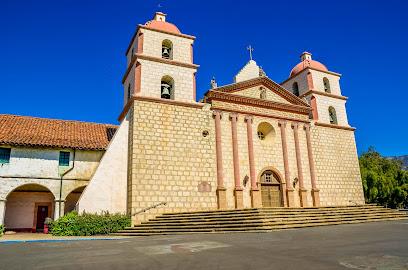
Old Mission Santa Barbara 1786
Discover California's colonial past at the 'Queen of the Missions,' a historic landmark with stunning architecture, gardens, and cultural treasures.
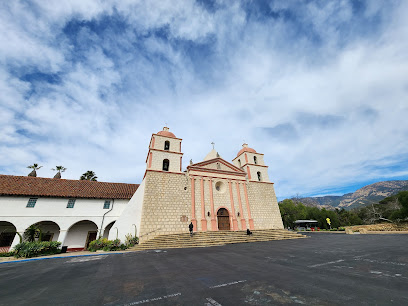
Arroyo Burro Beach County Park
Discover the natural beauty and vibrant atmosphere of Arroyo Burro Beach County Park in Santa Barbara, a perfect coastal escape for relaxation and adventure.

Goleta Beach Park
Discover the beauty of Goleta Beach Park, a stunning coastal escape in California offering sun, sand, and endless outdoor adventures for all.
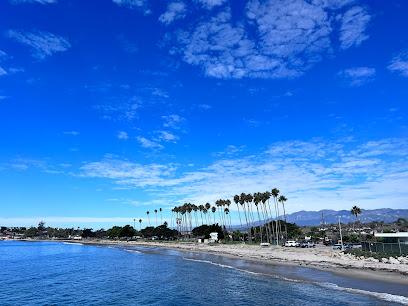
Solvang Visitor Center
Explore the charm of Solvang, California, a Danish-inspired village offering rich culture, delightful cuisine, and stunning landscapes in the heart of Santa Ynez Valley.
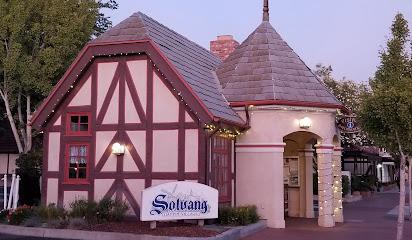
Shoreline Park
Discover panoramic ocean views, whale watching, and family fun at Santa Barbara's scenic Shoreline Park, a coastal gem for all to enjoy.
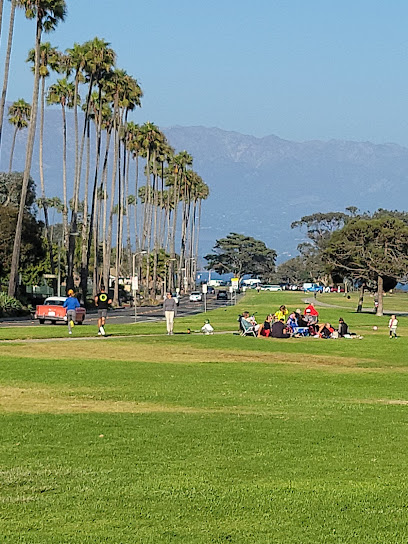
Leadbetter Beach
Santa Barbara's Leadbetter Beach: Gentle waves, beachfront dining, and a vibrant atmosphere make it perfect for families and water sports enthusiasts.
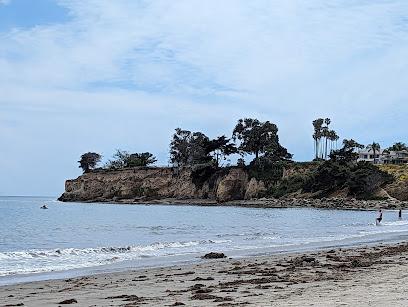
Santa Barbara Harbor
Explore Santa Barbara Harbor: a historic waterfront with boat tours, dining, maritime museum, and scenic views of the Pacific Ocean.
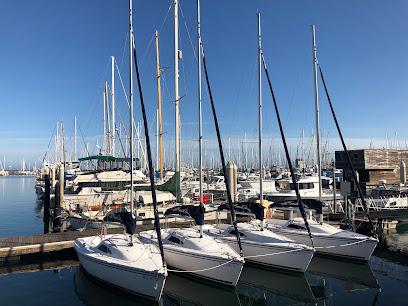
Santa Barbara County Courthouse Gardens
Discover the stunning gardens of Santa Barbara County Courthouse, a historical landmark blending nature and culture in California's beautiful coastal city.
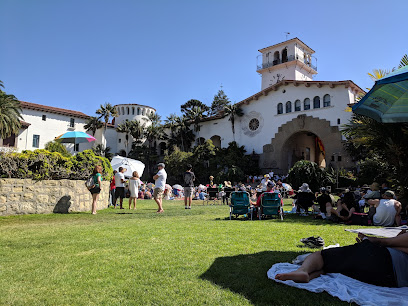
Santa Barbara Museum of Natural History
Discover the rich natural history of California at the Santa Barbara Museum of Natural History, an engaging destination for all ages.
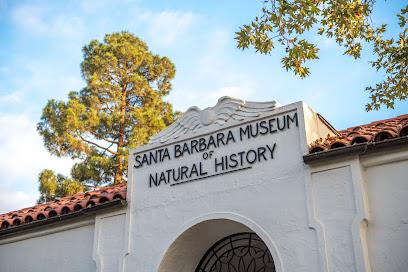
Essential places to dine
Boathouse at Hendry's Beach
Discover coastal charm and delectable seafood at Boathouse at Hendry's Beach - Santa Barbara's premier oceanfront dining experience.
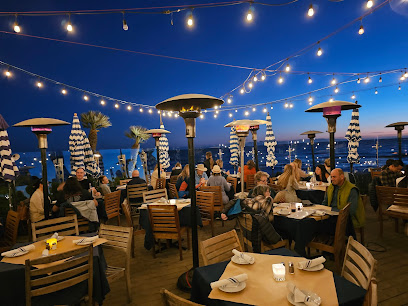
Brophy Bros.
Experience fresh seafood delights at Brophy Bros., where stunning ocean views meet delicious Californian cuisine in Santa Barbara.
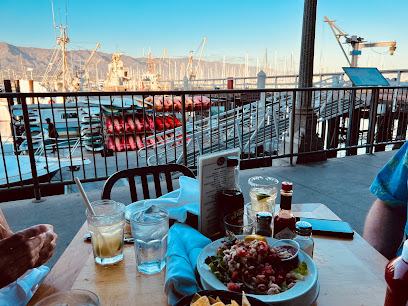
Santa Barbara Shellfish Company
Experience fresh seafood delights at Santa Barbara Shellfish Company on Stearns Wharf – where ocean views meet culinary excellence.
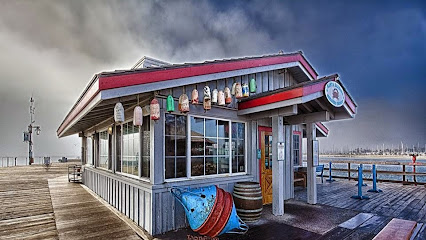
Santa Barbara FisHouse
Discover exquisite seafood and breathtaking ocean views at Santa Barbara FisHouse - where every meal is a coastal celebration.
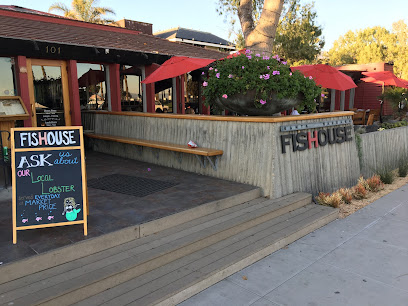
Joe's Cafe
Experience the best of American cuisine at Joe's Cafe in Santa Barbara - where delicious meals meet lively ambiance.
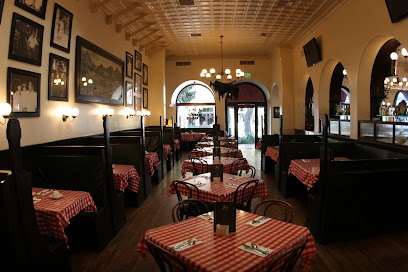
Finney's Crafthouse - Santa Barbara
Experience culinary excellence at Finney's Crafthouse in Santa Barbara - where New American flavors meet craft cocktails in a vibrant atmosphere.
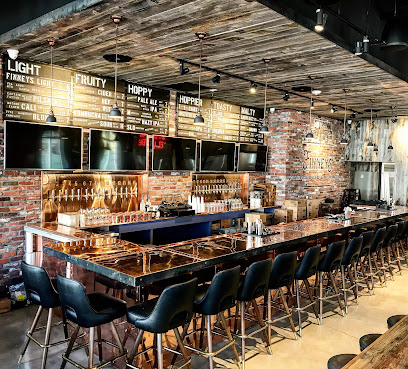
Santo Mezcal
Discover authentic Mexican cuisine at Santo Mezcal in Santa Barbara – where tradition meets modern flair in every delicious bite.
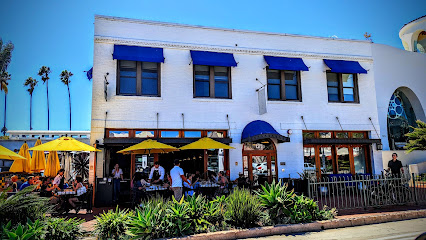
Loquita Santa Barbara
Savor authentic Spanish cuisine at Loquita Santa Barbara, where vibrant flavors meet modern dining in an enchanting atmosphere.
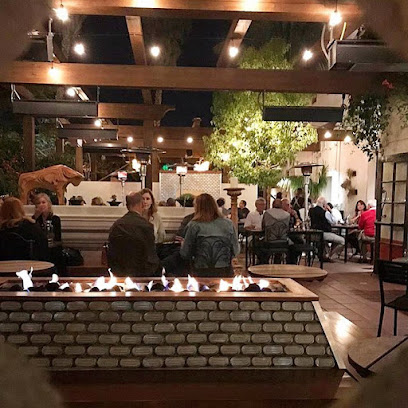
The Lark Santa Barbara
Experience exquisite New American cuisine at The Lark Santa Barbara, where seasonal ingredients meet culinary creativity in an inviting atmosphere.
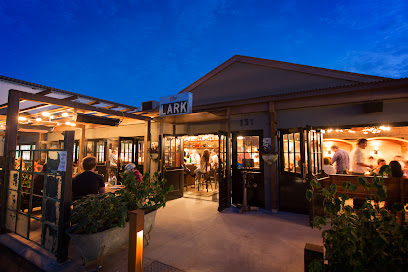
Mesa Verde Restaurant
Discover Mesa Verde Restaurant: A premier vegan dining destination offering delicious plant-based meals in beautiful Santa Barbara.
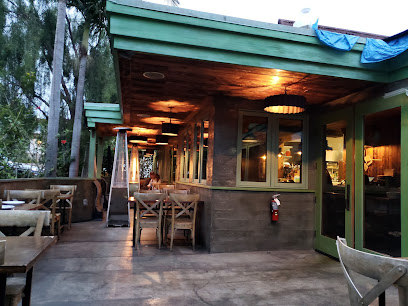
Toma Restaurant & Bar
Discover Toma Restaurant & Bar in Santa Barbara for exquisite Italian and Mediterranean cuisine paired with stunning coastal views.
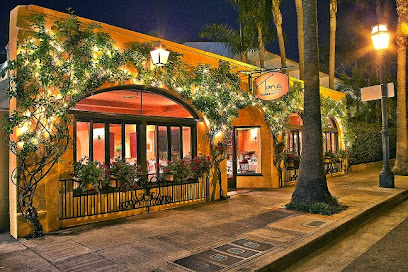
The Palace Grill
Experience the vibrant flavors of American cuisine at The Palace Grill in Santa Barbara, where every meal tells a delicious story.
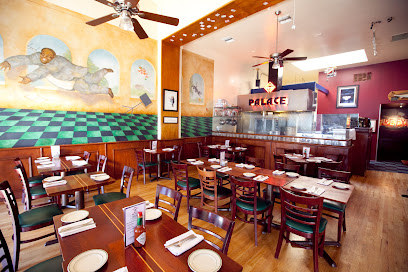
Cajun Kitchen
Experience authentic Southern cuisine at Cajun Kitchen in Santa Barbara - where hearty breakfasts meet vibrant flavors.
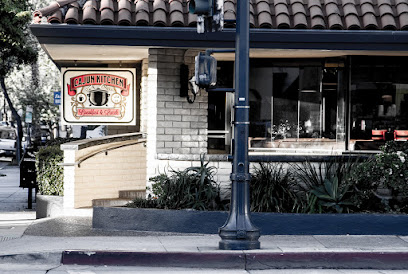
Eureka!
Discover Eureka!, the vibrant American restaurant in Santa Barbara offering delicious comfort food and craft beverages in a lively atmosphere.
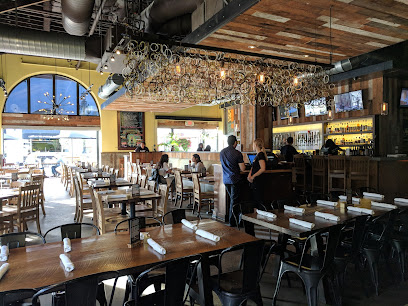
Benchmark Eatery
Experience the best of American cuisine at Benchmark Eatery in Santa Barbara—where gourmet burgers meet fresh seafood in a vibrant setting.
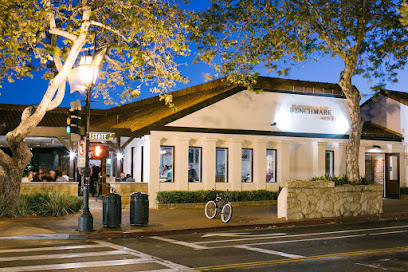
Markets, malls and hidden boutiques
Paradise Found
Explore Paradise Found in Santa Barbara for unique gifts, books, and local art that capture the spirit of this beautiful coastal city.
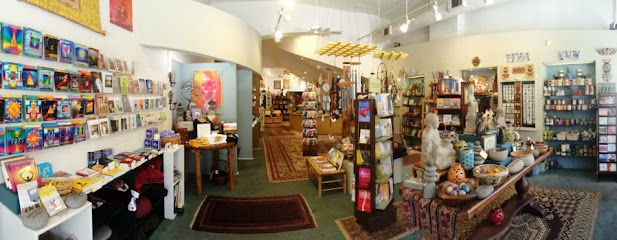
Urban Outfitters
Experience Santa Barbara's stylish vibe at Urban Outfitters, where fashion, beauty, and home goods meet in a vibrant shopping atmosphere.
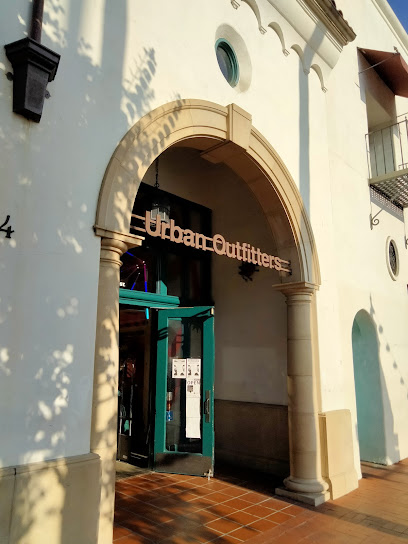
Antique Alley
Explore Antique Alley in Santa Barbara for a unique blend of vintage treasures, art, and local charm that captures the essence of California's rich history.
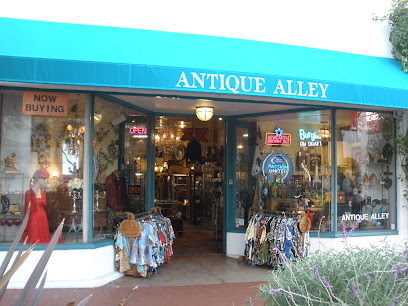
The Blue Door
Explore a unique antique store in Santa Barbara, featuring vintage furniture, art, and home goods that reflect timeless elegance.
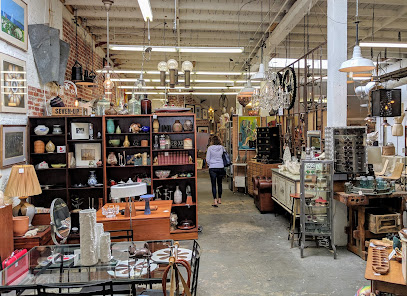
URBAN FLEA MARKET
Explore the Urban Flea Market in Santa Barbara to find vintage clothing, antiques, and unique gifts in a vibrant atmosphere full of local culture.
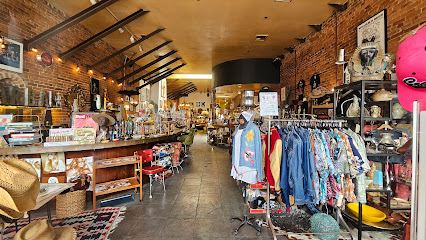
Anthropologie
Explore Anthropologie in Santa Barbara for an eclectic mix of women's fashion, beauty, and home decor that inspires creativity and individuality.
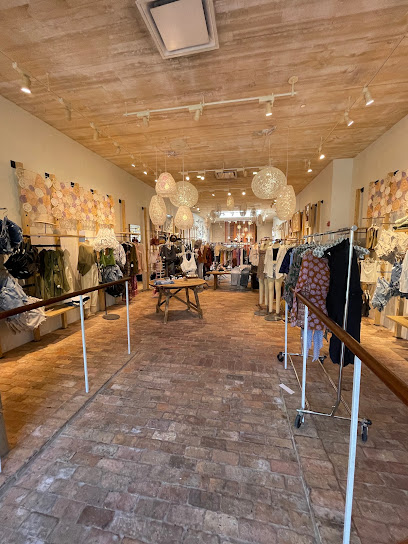
Old Wharf Trading Co
Explore Old Wharf Trading Co for unique Santa Barbara souvenirs and artisan gifts with a coastal flair, all at the historic Stearns Wharf.
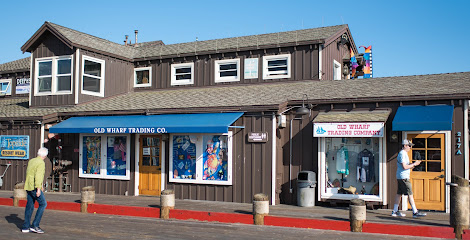
Only In Santa Barbara
Explore Only In Santa Barbara, your go-to gift shop for unique souvenirs, trendy clothing, and authentic local treasures in the heart of California's beautiful coast.
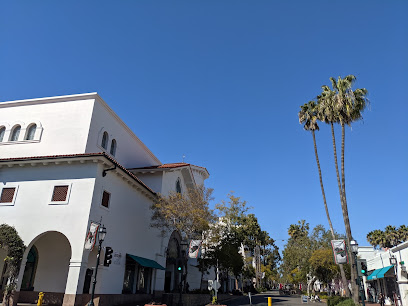
Lewis & Clark
Explore Lewis & Clark in Santa Barbara for unique gifts, home goods, and jewelry that capture the essence of California's charm.
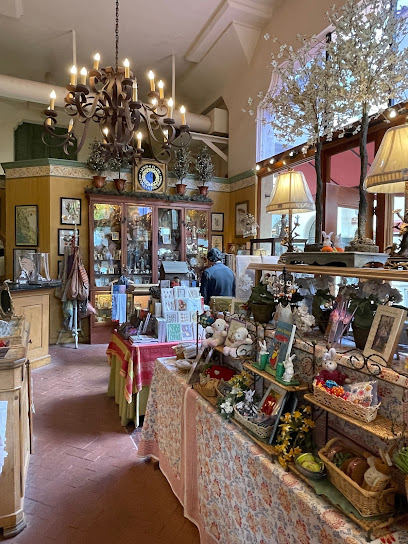
Moon River
Discover the charm of Moon River in Santa Barbara, featuring custom t-shirts, unique souvenirs, and a delightful shopping experience.
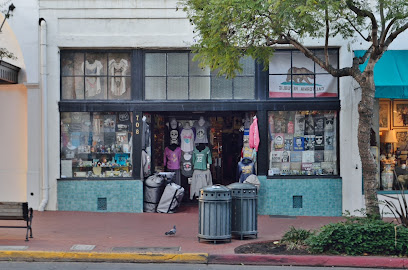
Dylan Star Boutique
Explore unique women's fashion at Dylan Star Boutique in Santa Barbara, where style meets local charm and exceptional customer service.
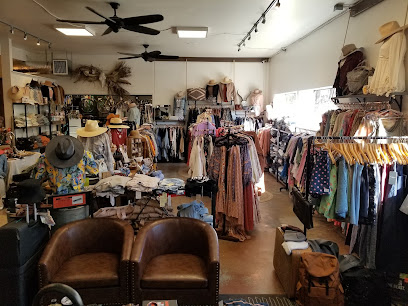
The Vintage Fox, Antiques & Gift Shoppe
Explore The Vintage Fox in Santa Barbara for unique antiques, vintage clothing, and one-of-a-kind gifts that capture the spirit of your travels.
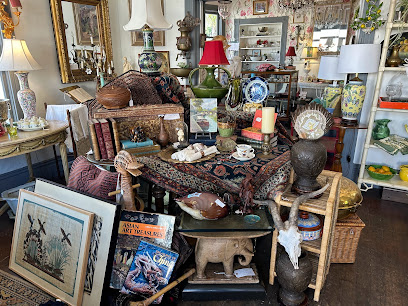
Seaside Makers - Santa Barbara
Explore unique local gifts and art at Seaside Makers in Santa Barbara – a treasure trove of creativity and craftsmanship.
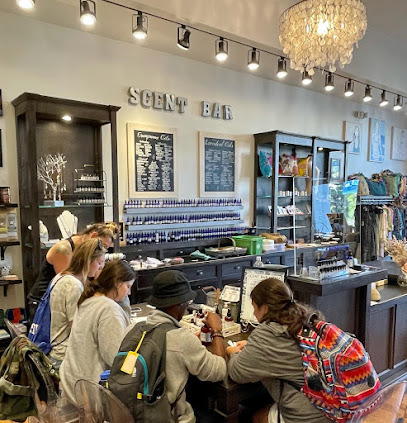
Asher Market
Discover unique gifts and local treasures at Asher Market in Santa Barbara, offering a delightful mix of clothing and accessories for all ages.
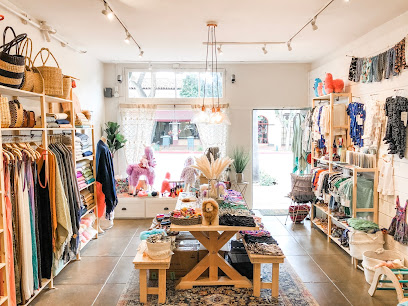
Loveworn
Explore Loveworn in Santa Barbara for a unique shopping experience combining fashion with local art and creativity.
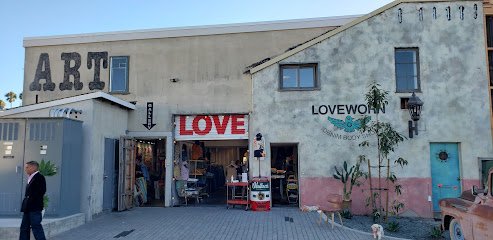
Essential bars & hidden hideouts
milk & honey
Discover the rich flavors of Spain at Milk & Honey, a vibrant tapas bar in Santa Barbara, offering a delightful blend of food and atmosphere.
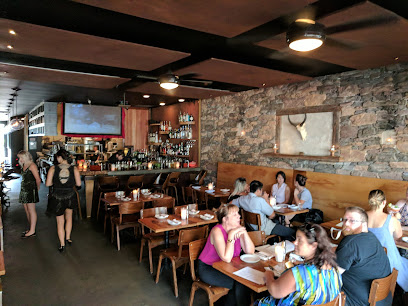
The Good Lion
Experience the vibrant cocktail culture of Santa Barbara at The Good Lion, where expertly crafted drinks meet a lively atmosphere.
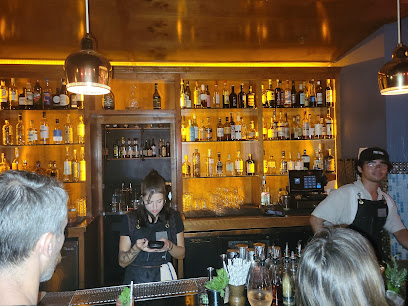
Test Pilot
Discover the vibrant atmosphere and innovative cocktails at Test Pilot, the ultimate cocktail bar in Santa Barbara, California.
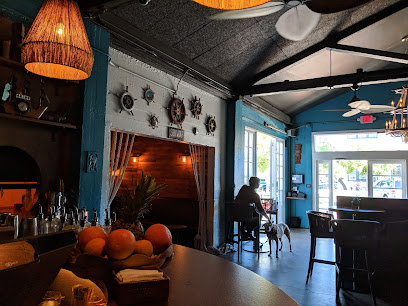
Santa Barbara Wine Therapy
Experience the ultimate wine journey at Santa Barbara Wine Therapy, a charming bar offering exquisite local and international wines paired with delectable bites.
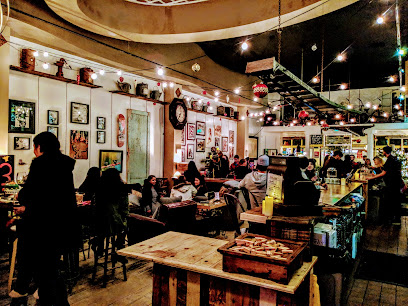
Elsies Tavern
Discover Elsies Tavern, a lively pub in Santa Barbara offering craft beers, cozy ambiance, and a delightful menu for everyone to enjoy.
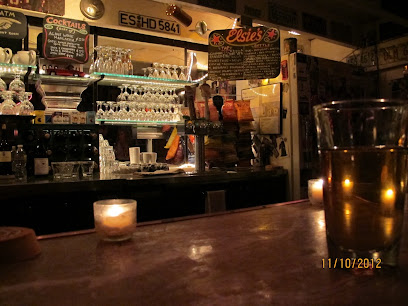
Uptown Lounge
Experience the vibrant atmosphere and delicious offerings at Uptown Lounge, Santa Barbara's hidden gem for pizza and drinks.
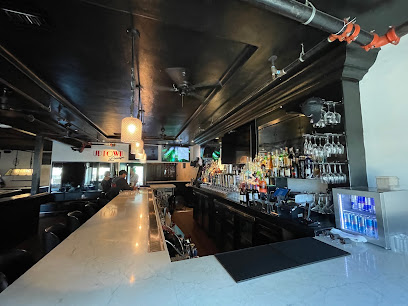
Old Kings Road
Discover the vibrant atmosphere and delightful offerings of Old Kings Road, a beloved pub in Santa Barbara perfect for relaxation and local flavor.
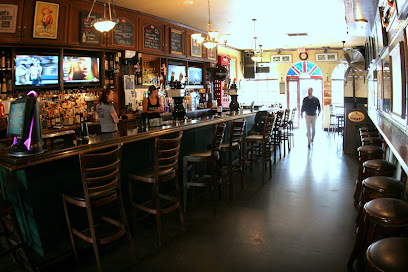
O'Malleys Bar
Discover O'Malleys Bar in Santa Barbara, a vibrant cocktail bar offering expertly crafted drinks and a lively atmosphere for an unforgettable night out.
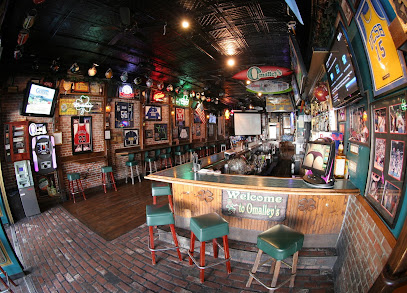
Press Room
Experience the vibrant nightlife at The Press Room, a charming bar in Santa Barbara offering generous pours and a welcoming atmosphere for all.
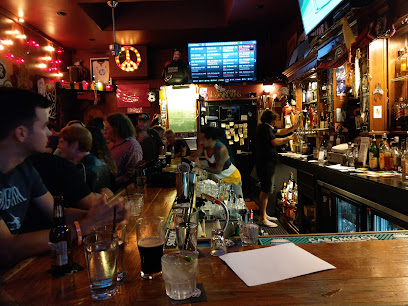
Whiskey Richards
Experience the vibrant nightlife at Whiskey Richards, Santa Barbara's beloved bar with live music, pool tables, and a welcoming atmosphere.
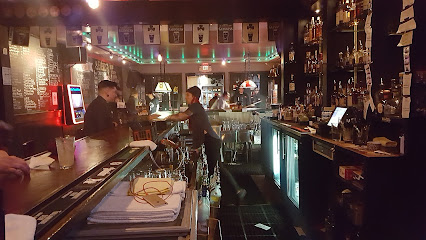
The Pickle Room
Experience the vibrant nightlife at The Pickle Room - Santa Barbara's premier cocktail bar and grill that delights with innovative drinks and delicious food.
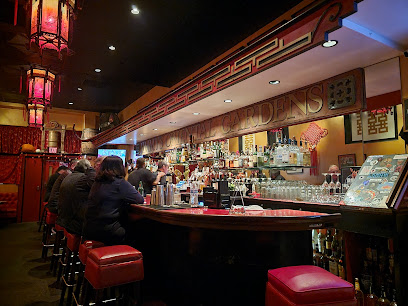
Shaker Mill
Experience innovative cocktails and a lively atmosphere at Shaker Mill, the go-to cocktail bar in Santa Barbara's Lower State neighborhood.
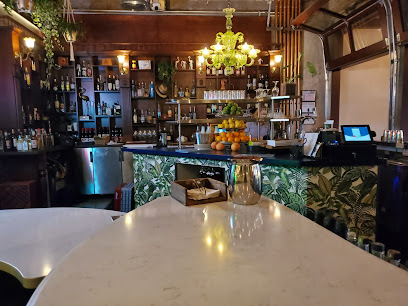
The Cliff Room
Discover The Cliff Room, a premier cocktail bar in Santa Barbara, where stunning ocean views meet innovative drinks in a vibrant atmosphere.
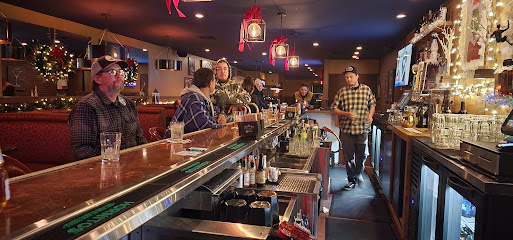
De la Vina lounge
Experience the vibrant cocktail culture at De la Vina Lounge in Santa Barbara, where handcrafted drinks meet a cozy, inviting atmosphere.
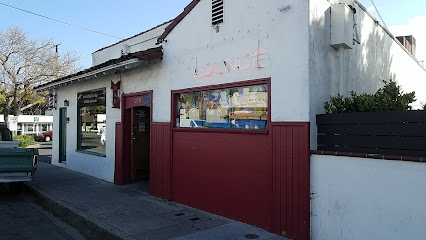
Local Phrases
-
- HelloHola
[oh-la] - GoodbyeAdiós
[ah-dee-ohs] - YesSí
[see] - NoNo
[no] - Please/You're welcomePor favor/De nada
[por fah-vor/de nah-dah] - Thank youGracias
[grah-see-ahs] - Excuse me/SorryDisculpe/Lo siento
[dee-skool-pe/loh see-en-toh] - How are you?¿Cómo estás?
[koh-moh es-tahs] - Fine. And you?Bien. ¿Y tú?
[byen. ee too] - Do you speak English?¿Hablas inglés?
[ah-blahs een-glays] - I don't understandNo entiendo
[noh en-tee-en-doh]
- HelloHola
-
- I'd like to see the menu, pleaseMe gustaría ver el menú, por favor
[may goo-stah-ree-ah ver el meh-noo, por fah-vor] - I don't eat meatNo como carne
[noh koh-moh kahr-neh] - Cheers!¡Salud!
[sah-lood] - I would like to pay, pleaseMe gustaría pagar, por favor
[may goo-stah-ree-ah pah-gar, por fah-vor]
- I'd like to see the menu, pleaseMe gustaría ver el menú, por favor
-
- Help!¡Ayuda!
[ah-yoo-dah] - Go away!¡Vete!
[veh-teh] - Call the Police!¡Llama a la Policía!
[yah-mah ah lah poh-lee-see-ah] - Call a doctor!¡Llama a un médico!
[yah-mah ah oon meh-dee-koh] - I'm lostEstoy perdido
[es-toy pehr-dee-doh] - I'm illEstoy enfermo
[es-toy en-fehr-moh]
- Help!¡Ayuda!
-
- I'd like to buy...Quisiera comprar...
[kee-see-air-ah kohm-prar] - I'm just lookingSolo estoy mirando
[soh-loh es-toy mee-rahn-doh] - How much is it?¿Cuánto cuesta?
[kwan-to kwehs-tah] - That's too expensiveEso es demasiado caro
[eh-so es deh-mah-syah-doh kah-roh] - Can you lower the price?¿Puedes bajar el precio?
[pweh-des bah-har el pree-syoh]
- I'd like to buy...Quisiera comprar...
-
- What time is it?¿Qué hora es?
[keh or-ah es] - It's one o'clockEs la una
[es lah oo-nah] - Half past (10)Las diez y media
[lahs dee-ehs ee meh-dee-ah] - MorningMañana
[mah-nyah-nah] - AfternoonTarde
[tahr-deh] - EveningNoche
[noh-cheh] - YesterdayAyer
[ah-yehr] - TodayHoy
[oy] - TomorrowMañana
[mah-nyah-nah] - 1Uno
[oo-noh] - 2Dos
[dohs] - 3Tres
[trehs] - 4Cuatro
[kwah-troh] - 5Cinco
[seen-koh] - 6Seis
[says] - 7Siete
[syeh-teh] - 8Ocho
[oh-choh] - 9Nueve
[nweh-veh] - 10Diez
[dee-ehs]
- What time is it?¿Qué hora es?
-
- Where's a/the...?¿Dónde está...?
[dohn-deh es-tah] - What's the address?¿Cuál es la dirección?
[kwal es lah dee-rehk-syon] - Can you show me (on the map)?¿Puedes mostrarme (en el mapa)?
[pweh-des mohs-trar-meh (en el mah-pah)] - When's the next (bus)?¿Cuándo es el próximo (autobús)?
[kwan-doh es el proh-ksee-moh (ow-toh-boos)] - A ticket (to ....)Un boleto (a ...)
[oon boh-leh-toh (ah)]
- Where's a/the...?¿Dónde está...?
History of Santa Barbara
-
Long before European settlers arrived, the Santa Barbara area was inhabited by the Chumash Native American tribe. The Chumash people thrived along the coast, utilizing resources from the ocean and the land. They were skilled artisans known for their beadwork, basket weaving, and plank-built canoes called 'tomols,' which were used for fishing and trading.
-
In 1782, Spanish explorers arrived in the area and founded the Mission Santa Barbara, part of a chain of 21 missions established along California's coast. The mission aimed to convert the Chumash to Christianity and integrate them into Spanish colonial society. The architecture of the mission, with its iconic twin bell towers, stands as a testament to this era.
-
After gaining independence from Spain in 1821, Mexico took control of California. During this period, the land around Santa Barbara was divided into large ranchos and granted to influential families. These ranchos were primarily used for cattle ranching, which became a cornerstone of the local economy.
-
California became part of the United States in 1848 following the Mexican-American War. Santa Barbara saw an influx of American settlers and entrepreneurs. The Gold Rush era brought increased attention to California, and Santa Barbara began to develop as a town with new businesses, schools, and civic structures.
-
On June 29, 1925, Santa Barbara was struck by a devastating earthquake that caused significant damage to the city's infrastructure. This event led to a major rebuilding effort, during which the city's architectural style was transformed to reflect the Spanish Colonial Revival aesthetic, an influence that persists in Santa Barbara's distinctive look today.
-
During World War II, Santa Barbara played a strategic role with the establishment of military bases and training facilities. Following the war, the city experienced rapid growth and development, becoming a popular destination for tourists and new residents alike. The economy diversified, with an increased emphasis on education, technology, and the arts.
-
Today, Santa Barbara is known for its blend of historical charm and modern amenities. The city boasts a vibrant cultural scene, with numerous museums, theaters, and festivals. Its Mediterranean climate, beautiful beaches, and scenic landscapes attract visitors from around the world, while the preservation of its historical architecture maintains its unique character.
Santa Barbara Essentials
-
Santa Barbara is accessible by several means of transportation. The Santa Barbara Airport (SBA) offers direct flights from major cities across the United States. For international travelers, Los Angeles International Airport (LAX) is the nearest major international airport, approximately 90 miles away. From LAX, you can rent a car, take a shuttle service, or use the Amtrak train service to reach Santa Barbara. The Amtrak Coast Starlight and Pacific Surfliner trains offer scenic routes along the coast. Driving to Santa Barbara is also an option, with U.S. Highway 101 providing a direct route through the city.
-
Santa Barbara has a variety of transportation options. The Metropolitan Transit District (MTD) operates local buses that cover most areas of the city, making it easy to get around. Taxis and rideshare services like Uber and Lyft are also readily available. For a more leisurely experience, you can rent bicycles or electric scooters from various rental shops. The city is quite walkable, especially downtown and along the waterfront. Additionally, the Santa Barbara Trolley offers a convenient and fun way to see the city's main attractions.
-
The official currency in Santa Barbara, as in the rest of the United States, is the U.S. Dollar (USD). Credit and debit cards are widely accepted in hotels, restaurants, and shops. ATMs are plentiful throughout the city. It's advisable to carry some cash for small vendors and tips. Mobile payment options like Apple Pay, Google Wallet, and others are also commonly accepted.
-
Santa Barbara is generally a safe city for tourists. However, it's wise to exercise standard precautions. The downtown area and the waterfront are typically safe, but it's advisable to avoid walking alone late at night in less populated areas. The Eastside and Lower Westside neighborhoods have higher crime rates compared to other parts of the city, so be particularly cautious in these areas. Keep an eye on your belongings in crowded places and be aware of your surroundings.
-
In case of emergency, dial 911 for immediate assistance from police, fire services, or medical personnel. Santa Barbara Cottage Hospital is the main medical facility in the city and is well-equipped to handle emergencies. Pharmacies are available throughout the city for minor health issues. It's advisable to have travel insurance that covers medical emergencies. Keep emergency contact numbers and your insurance information handy.
-
Fashion: Do dress comfortably and in layers, as the weather can vary. Santa Barbara has a casual, beach-town vibe, so casual attire is appropriate. Avoid overly formal clothing unless attending a specific event. Religion: Do respect the local churches and religious sites. Casual attire is generally acceptable, but avoid beachwear when visiting these places. Public Transport: Do respect others on public transport and offer your seat to elderly passengers if needed. Don't eat or drink on buses. Greetings: Do greet people with a smile and a friendly 'hello.' Handshakes are common in more formal settings. Eating & Drinking: Do try the local cuisine and wines. Don't forget to tip your servers, typically 15-20% of the bill.
-
To experience Santa Barbara like a local, visit the weekly Farmers Market to buy fresh produce and local goods. Rent a bike and ride along the Cabrillo Bike Path for stunning coastal views. Explore the Funk Zone, an artsy neighborhood filled with galleries, shops, and wine tasting rooms. For a unique dining experience, try some of the seafood restaurants on Stearns Wharf. Don't miss the opportunity to hike in the nearby Santa Ynez Mountains for breathtaking views of the city and coastline.
Trending Landmark in Santa Barbara
-
Stearns Wharf
-
Old Mission Santa Barbara 1786
-
Arroyo Burro Beach County Park
-
Shoreline Park
-
Santa Barbara Harbor
-
Alameda Park
-
Santa Barbara Botanic Garden
-
Santa Barbara Museum Of Art
-
Lotusland
-
Kids World
-
Moreton Bay Fig Tree
-
El Presidio de Santa Bárbara State Historic Park
-
Chumash Painted Cave State Historic Park
-
Santa Barbara Historical Museum
-
Mission Historical Park
Nearby Cities to Santa Barbara
-
Things To Do in Oxnard
-
Things To Do in Malibu
-
Things To Do in Santa Clarita
-
Things To Do in Pismo Beach
-
Things To Do in Santa Monica
-
Things To Do in Venice Beach
-
Things To Do in Bakersfield
-
Things To Do in Burbank
-
Things To Do in Hollywood
-
Things To Do in Inglewood
-
Things To Do in Glendale
-
Things To Do in Los Angeles
-
Things To Do in Pasadena
-
Things To Do in Monterey Park
-
Things To Do in Long Beach

















